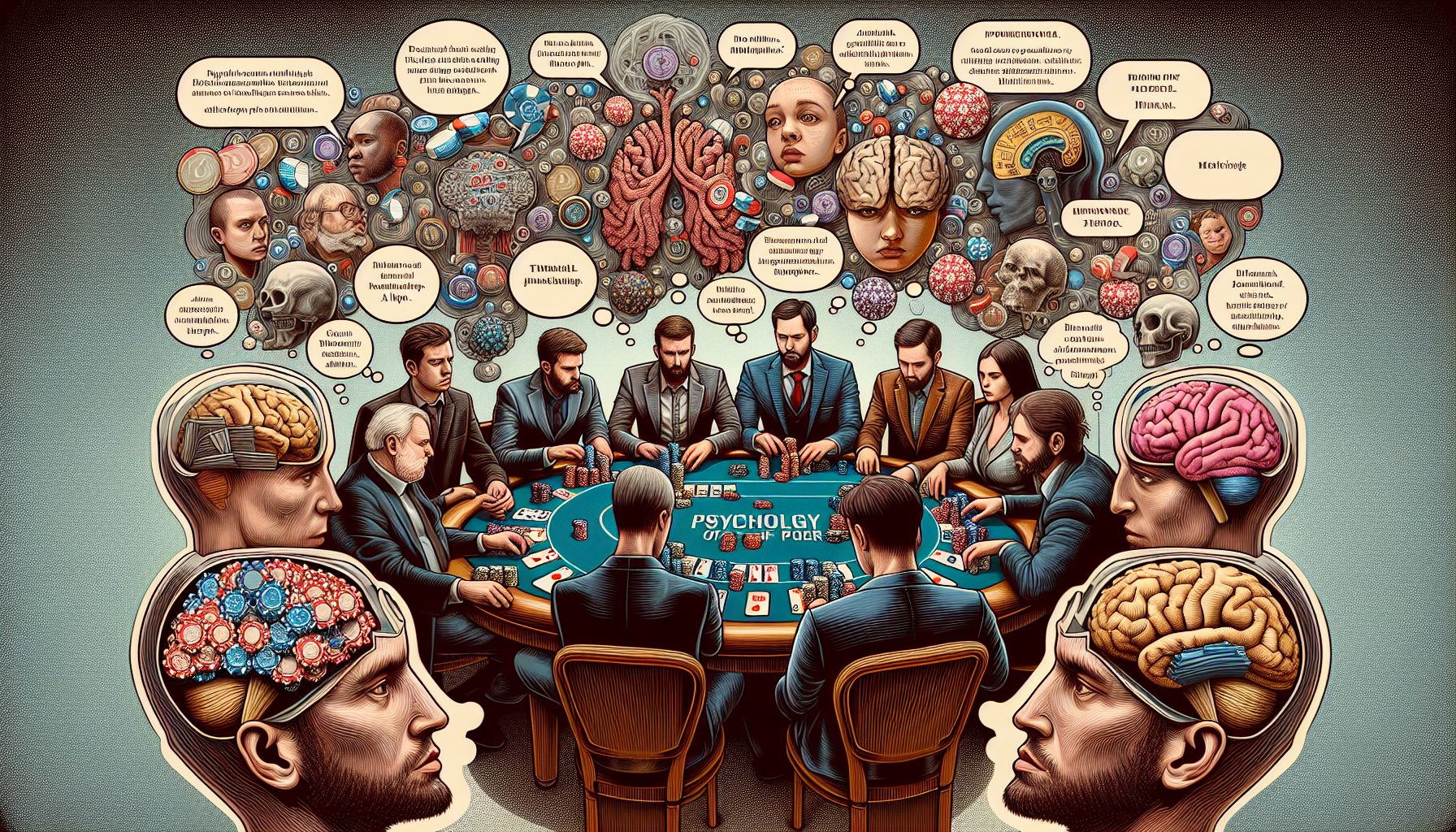Poker is a game of skill, strategy, Understanding Your Opponents’ Minds and calculated risk-taking. And while it may seem like a purely logical game, it is also heavily influenced by psychology. In fact, understanding the minds of your opponents is crucial to succeeding in poker. It allows you to not only anticipate their moves but also manipulate and control the flow of the game. In this blog post, we will delve deeper into the psychology of poker and how it can give you an edge at the poker table.
The Power of Observation: Understanding Your Opponents’ Minds
One of the most important skills in poker is the ability to observe your opponents. It may seem like a simple task, but it requires a keen eye, attention to detail, Understanding Your Opponents’ Minds and the ability to read people. In poker, everything from body language to betting patterns can give you valuable information about your opponents’ hands.
For example, Understanding Your Opponents’ Minds if a player is leaning forward with their hands on their chin, it could indicate that they have a strong hand as they are contemplating their next move. On the other hand, someone who is sitting back casually might have a weaker hand and is not too concerned about the game.
Betting patterns can also reveal a lot about a player’s hand. If a player suddenly increases their bet after several rounds of folding, it could indicate that they have a strong hand and are trying to intimidate others. Conversely, a player who consistently checks or calls without raising could be holding a weaker hand.
By observing these subtle cues and patterns, you can start to build a psychological profile of your opponents and use it to your advantage.
The Art of Bluffing :Understanding Your Opponents’ Minds
Bluffing is an essential part of poker, and it requires a deep understanding of human psychology. A successful bluff is not just about having a good poker face; it also involves understanding your opponents’ mind and manipulating them into believing something that is not true.
One of the keys to effective bluffing is timing. It’s important to pick the right moment to bluff, such as when the pot is large, or your opponent appears to be vulnerable. In these situations, players are more likely to fold their hand as they don’t want to risk losing a significant amount of money.
Another factor to consider is your opponent’s personality. Some players are more prone to falling for bluffs, while others are more cautious and harder to manipulate. By observing your opponent’s reactions and tendencies, you can adjust your bluffing strategy accordingly.
However, bluffing is also a double-edged sword. If your bluff is unsuccessful, it can damage your credibility at the table and make it difficult for you to bluff successfully in the future. That’s why it’s crucial to use bluffing sparingly and only when the odds are in your favor.
The Impact of Emotions Understanding Your Opponents’ Minds
As much as we’d like to think that poker is a game of intellect, emotions play a significant role. The highs of winning and the lows of losing can affect a player’s decisions and overall performance. When emotions are running high, rational thinking becomes clouded, and players are more likely to make impulsive and irrational decisions, leading to costly mistakes.
Therefore, it’s vital to manage your emotions while playing poker. This means staying calm, focused, and in control of your actions. It’s also important to pay attention to your opponents’ emotions. If you notice that a player is getting frustrated or angry, it could be a sign of a weak hand, and you can use that to your advantage.
On the other hand, if you’re on a losing streak and find yourself getting emotional, it might be wise to take a break and step away from the table. By doing so, you can regroup and come back with a clear mind and better decision-making abilities.
The Role of Mind Games
Poker is not just a game of cards; it’s also a game of the mind. Players use various mind games to gain an edge over their opponents and throw them off their game. One of the most common tactics is to act in a certain way to make your opponent believe something about your hand or intentions.
For example, a player might act confidently to intimidate their opponents into thinking they have a winning hand. Or they might shake their head and appear defeated to make others think that they have a losing hand when, in reality, they have a strong one.
Another mind game is to deceive your opponents by showing them a losing hand when you actually have a winning one. This tactic is known as “slow-rolling,” and it can be a powerful tool to tilt your opponents and throw them off their game.
While mind games can be effective, they also require a certain level of skill and confidence. It’s important not to overdo them as they can backfire and ruin your credibility at the table.
The Importance of Self-Awareness
In poker, as in life, self-awareness is crucial for success. Knowing your own mind and tendencies can help you make better decisions and avoid costly mistakes. For example, if you tend to tilt easily when things don’t go your way, you can work on managing your emotions and controlling your reactions.
Self-awareness also comes into play when it comes to recognizing your own tells. A “tell” is a subconscious behavior or gesture that can signal your opponents about the strength or weakness of your hand. By being aware of your tells, you can work on fixing them or using them strategically to deceive your opponents.
The Role of Luck
In a game like poker, where luck plays a significant role, it’s essential to understand the psychology behind it. When players are on a winning streak, they often attribute it to their skill and strategy, while in reality, it could be purely luck. On the other hand, when players are on a losing streak, they may blame themselves, even though it could just be a case of bad luck.
Understanding how luck can influence our interpretation and behavior at the poker table is crucial to maintaining a balanced mindset. It’s essential to acknowledge that while we can control our actions, we cannot control luck. By accepting this, we can stay focused and make rational decisions, regardless of the outcome.
Conclusion
In conclusion, poker is not just a game of logic and probability; it’s also heavily influenced by psychology. By understanding your opponents’ minds and using it to your advantage, you can gain an edge at the poker table. Observing body language and betting patterns, knowing when to bluff, managing emotions, playing mind games, and having self-awareness are all essential skills in the game of poker. And while luck may play a role, it’s crucial to stay focused, rational, and in control of your actions. Remember, poker is not just about the cards you hold; it’s also about the minds of those sitting at the table with you.
Baca Juga: Fashion at the Felt: Style and Persona in the Poker Room


